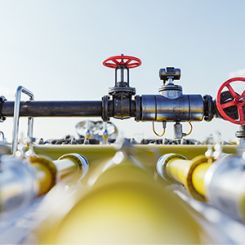Orientation of structures and choice of pumps add to the overall efficiency of the strategically planned community.
12/03/2015
Masdar City is like the ultimate planned community for residential living. The focus, though, is not on recreational and entertainment amenities for families but on enhancements in energy efficiency for cities of the future.
 Image 1. Buildings in Masdar City are close together, providing shade for residents and less stress on the pumps.
Image 1. Buildings in Masdar City are close together, providing shade for residents and less stress on the pumps.
